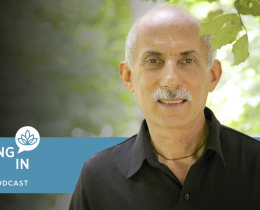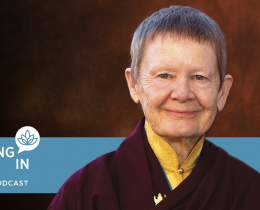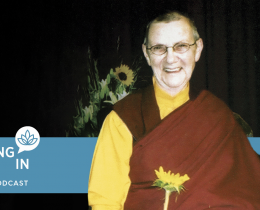In some form, the vision of the bodhisattva is celebrated in every culture. We revere the figures of Saint Francis and Kwan Yin, and we take public inspiration from the medical mission of Albert Schweitzer in Africa and Dorothy Day, the founder of the Catholic Worker Movement.
But following the bodhisattva way does not require us to become a monk like Saint Francis or to work in Central Africa like Schweitzer. It is based on the truth that we can transform our own circumstances into a life of inner and outer service. To do this without being overwhelmed, the bodhisattva creates a life of balance.
This is eminently practical. If we want to act wisely in the world, the first step is to learn to quiet the mind. If our actions are born from anger, grasping, fear, and aggression, they will perpetuate the problems. How many revolutions have overthrown oppressive regimes, to then turn around and become the oppressors? Only when our own minds and hearts are peaceful can we expect peace to come through the actions we take.
To understand this integration of inner and outer, we can again look at the life of Gandhi. Even during the most turbulent years, when he was dismantling the British Empire’s control of India, Gandhi spent one day a week in silence. He meditated so that he could act from the principles of interdependence, not bringing harm to himself or another. No matter how pressing and urgent the political situation, the day he spent in silence allowed him to quiet his mind and listen to the purest intentions of his heart.
If you want to live a life of balance, start now. Turn off the news, meditate, turn on Mozart, walk through the forest or the mountains and begin to make yourself a zone of peace. When I return from a long retreat or from traveling for months, I’m amazed that the news is pretty much the same as when I left. We already know the plot, we know the problems. Let go of the latest story. Listen more deeply.
Remember the story Zen master Thich Nhat Hanh told of the crowded refugee boats. “If even one person on the boat stayed calm, it was enough. It showed the way for everyone to survive.”
When we react to terrorism with fear, we worsen the problem, we create a frightened, barricaded society—a fortress America. Instead, we can use courage and compassion to respond calmly, with both prudent action and a fearless heart.
The quieting of our mind is a political act. The world does not really need more oil or energy or food. It needs less greed, less hatred, less ignorance. If we have inadvertently taken on the political bitterness or cynicism that exists externally, we can stop and begin to heal our own suffering, our own fear, with compassion. Through meditation and inner transformation, we can learn to make our own hearts a place of peace and integrity.
Each of us knows how to do this. As Gandhi acknowledged, “I have nothing new to teach this world. Truth and nonviolence are as old as the hills.” It is our inner nobility and steadiness that we must call upon in our personal and collective difficulties.



